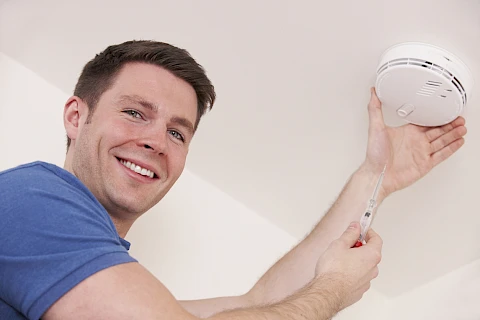
As the chilly months approach, ensuring the safety of senior homes becomes a top priority. Winter presents unique risks, particularly concerning fires and carbon monoxide (CO) poisoning. Taking proactive steps to address these hazards can make all the difference in creating a secure environment for your senior loved ones this winter.
The Risks of Fires in Winter
During the winter, the risk of fires in senior homes increases for several reasons. Space heaters, fireplaces, and holiday decorations can pose significant fire hazards. The danger of carbon monoxide poisoning becomes more pronounced as heating systems and appliances are used more frequently, often in enclosed spaces. Seniors are particularly vulnerable as their bodies may not respond as quickly to CO exposure, increasing their risk of severe health issues. This heightened vulnerability underscores the need for caregivers to prioritize preventive measures in senior homes.
Heating Equipment Maintenance
Heating systems should be inspected and serviced regularly, preferably by professionals. Ensuring that equipment is in good working order can prevent dangerous malfunctions. If using space heaters, keep them at least three feet away from flammable objects, and never leave them unattended. Similarly, fireplaces should be cleaned and checked for obstructions before use.
Detectors: Installation and Testing
Smoke and carbon monoxide detectors are essential safety devices every senior home needs to ensure early detection of potential hazards. Install both throughout the home, focusing on bedrooms, hallways, and common areas. Always follow the manufacturer's instructions for proper placement.
Regular testing is vital to ensure detectors are working correctly. Replace batteries every six months or immediately if the detector begins to beep. These devices are the first line of defense against fire and CO dangers.
Developing an Emergency Evacuation Plan
A clear evacuation plan can save lives in an emergency. Begin by showing your senior loved one the exits and safe meeting spots outside. Keep pathways clear of clutter to prevent trips or falls during an emergency. The plan should be straightforward, with step-by-step instructions. Practicing regular evacuation drills helps everyone remember what to do when seconds count.
Ensure all seniors are familiar with the plan and know who to call for help during an emergency. Clear signage and easy-to-understand instructions can make a significant difference. Consider labeling exits in large print and using simple language in emergency plans. Regularly review and adapt the plan to address mobility or cognitive changes in seniors.
Get Support for Senior Safety at Home From Senior Helpers
Ensuring the safety of senior homes during the winter requires careful planning and proactive measures. Having the right support does not hurt either. If you’re considering getting additional help caring for a senior loved one at home, Senior Helpers Northwest Atlanta can help. We specialize in providing personalized senior home care services, including home safety evaluation, assistance with daily living tasks, companionship and conversation, and other aspects of senior care. Contact us to learn more about our tailored senior care services in Atlanta, Austell, Lithia Springs, Mableton, and Smyrna.